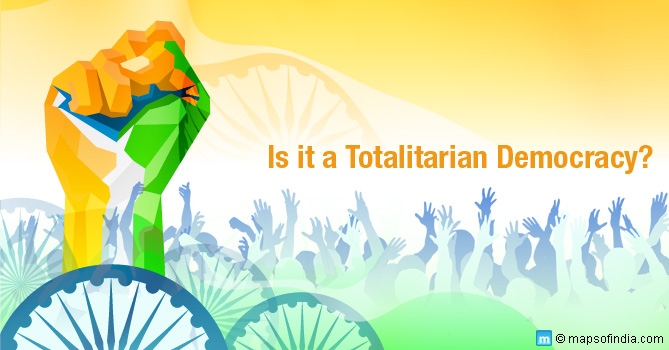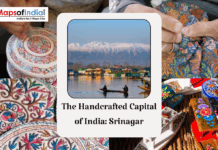It is time for the nation to collectively reflect and debate what our founding fathers envisaged this nation to be and what we have become today. If we are evolving and moving in the right direction then we have nothing to worry but the question is, are we?
The Constitution of the country allows, we the people, to democratically elect the government that we choose, and once elected, the government carries the responsibility to govern the nation based on the agreed manifesto but within the confines of our constitutional objectives. Recent triggers have forced several sections of people to ask ‘are we a democratically elected totalitarian government?’
While the existing government at the centre and in various states would vehemently deny the charge, incidents occurring on account of government sanction or inaction seem to point to this view. Let’s review some controversial decisions.
Mutton/Beef Ban for Four Days in Mumbai
This week Mumbai city was surprised to hear the Brihanmumbai Municipal Corporation (BMC) ban the sale of meat/beef on four days on account of the Jain fasting festival of Paryushan. There is total ban on slaughter and sale of meat on 10, 13, 17 and 18 September this year. The move follows an earlier order imposing an eight-day ban announced by the Mira Bhayander Municipal Corporation (MBMC).
While it is true that the practice of banning slaughter and sale of mutton and beef has been imposed for two days each year for the last several years, this year BMC has increased the ban to four days. What is ironical is that the sale of fish and chicken is allowed through the period. This has upset other communities that question the government’s decision to appease one community at the cost of others.
Threat to Freedom of Speech
Article 19 of the Constitution guarantees freedom of speech and expression; therefore, any attempt by the government to muzzle voices of dissent or criticism shows the government in poor light. The most recent example is the BJP-led Maharashtra Government’s recent circular stating “Whoever, by words, either spoken or written, or by signs or by visible representation, is critical of politicians, elected representatives, belonging to the government”, may be charged under Section 124-A of the Indian Penal Code.
The stringent law is meant to fight serious attempts at anarchy and actions against the state that threatens the very existence of the state. The current circular opens the possibility of serious misuse by the government in interpreting what comprises of sedition.
The arrest of cartoonist Aseem Trivedi on sedition charges
In September 2012, Aseem Trivedi, a Kanpur-based political cartoonist, was arrested for publishing cartoons that was critical of corruption in government. His ‘Cartoons against Corruption’ campaign came up for discussion in the Parliament and he was subsequently arrested under sedition charges.
Ever since his arrest, there has been much heated debate amongst all sections of society on the thin line between what comprises of sedition and what was in the realm of free speech.
Class XI boy arrested for Facebook posting against UP Minister Azam Khan
In March 2015, a class XI boy from Bareilly in U.P, was arrested under Section 66-A of the IPC and sent to 14 day judicial custody for posting controversial comments on Facebook that was attributed to UP Minister Azam Khan. According to the boy’s father, he had merely ‘shared’ the post and not composed it himself.
Two girls arrested for Facebook upload in Mumbai
Shiv Sena leader Bal Thackeray’s death in November 2012 brought Mumbai to a standstill. Commenting against this were two girls, who on their Facebook page spoke against the city being held hostage in the aftermath of his death. The comment resulted in the arrest of both the girls under Section 505(2) that covers ‘statements creating or promoting enmity, hatred or ill-will between classes’.
Shipbuilding professional arrested for Facebook anti-Modi ‘Holocaust’ comment
Just before the Lok Sabha General Elections in 2014, a young professional from Goa, Devu Chodankar was arrested for his Facebook post in Goa+, a forum with a large following, wherein he stated that Narendra Modi would unleash a ‘holocaust’ if elected as the PM. He was arrested under Sections 153(A), 295(A), 125 and 66-A.
All arrests as a result of ‘controversial posts’ on social media have been under various sections, with Section 66-A being the most common one, that has been misused by the police and various elements in the government, to muzzle free speech, as guaranteed under the Constitution.
Strange Government Diktats
Banning porn sites
In August this year, the government took a decision to ban porn sites under the excuse of preventing child porn. In a hasty diktat, it ordered 850 porn sites to be blocked and asked telecom service providers to ensure the implementation of the order. The service providers on their part said that it was not possible to ensure complete ban as there were ways to access it that was beyond their control. Finally, sense prevailed and the government issued a clarification that it was only restricted to child porn sites. But the damage was done.
Pictures of politicians to be removed from all government advertisements, hoardings and posters
In a strange but welcomed by many, the Supreme Court ordered the Central and State governments to ensure that no politician, minister or MLA’s picture appeared in any advertisement, hoarding or poster. Coming down hard on the government’s profligate spending of taxpayer’s money, the apex court ruled that the government must ensure that pictures of serving ministers, including Chief Ministers, MPs and MLAs were removed immediately. Only the President of India, the Prime Minister and the Chief Justice’s pictures can be published.
So is the government in India emerging as a democratically elected but totalitarian government?
Going by the trend as seen above, one would tend to think so. This kind of totalitarian response and edicts are familiar in countries like China, and now increasingly seen in countries like Russia. India, on the other hand, has always prided itself in being a secular, democratic and multicultural country, where everyone has the freedom to live a free life, where freedom of speech and religion is sacrosanct.
These are now being challenged with increasing frequency and it is up to us, the people, to speak up and safeguard values that we believe are sacred to being an Indian in India.





